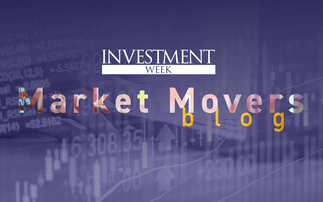Investors in virtually all types of active funds are losing out on returns due to a 'short-sighted' investment mentality that is leading them to buy at the top of the market and sell at the bottom.
A comparison of the reported returns of open-ended funds to the actual money-weighted returns received by the average investor by Morningstar found investor returns in European-domiciled funds tended to be lower than the reported return of the fund over a five-year period.
This is due to the 'unfortunate' timing of investors selling in and out of the vehicle.
Matias Möttölä, senior manager research analyst at Morningstar, believes it is a herd bias that is leading investors to suffer from poor timing in "practically all types of funds".
He said: "Investors are short-sighted and risk-averse, and they focus too much on relative returns. They panic in down markets and sell out of their positions after a drawdown.
"When the market turns back up, investors feel beaten and disappointed, and tend to hesitate before jumping back in."
Morningstar's Mind The Gap 2016 - Europe report revealed only passive investors have managed to avoid losses associated with poorly-timed cashflows in funds, while active fund investors have a tendency to lose out in the majority of cases.
Wealth managers
The findings are backed up by wealth managers who argue it is difficult for investors to stick to a conviction in difficult or falling markets, such as in 2008.
Gary Reynolds, CIO of Courtiers, commented: "Everyone is susceptible to herd bias and the ones who say they are not are dishonest."
Where are the crowded trades investors should be avoiding?
He added: "It can be horrible to stick with an investment when it is going down. When you are under pressure to perform, it can be easy to retreat into the herd and you have to resist that when you are running money. You have to be brave and the best thing is to stick to the fundamentals.
"We have had clients come back to us with deep regret because they exited a market that later bounced back, but it is very rare to get a client who is willing to invest when a market is falling."
Meanwhile, Rory McPherson, head of investment strategy at Psigma, argued fund managers themselves are perhaps more susceptible to such behavioural biases.
He said: "I would say herding has been an issue this year with some UK managers. We are happy to see quality income managers owning larger-cap names which trade at near-full valuations, but there are few value funds out there that have braved the really beaten down sectors."
He specifically pointed to the metals and mining sector, which is up 188% this year, and the oil and gas sector, up 47%, compared to the 15% return of the FTSE 100. Managers have been underweight both sectors.













